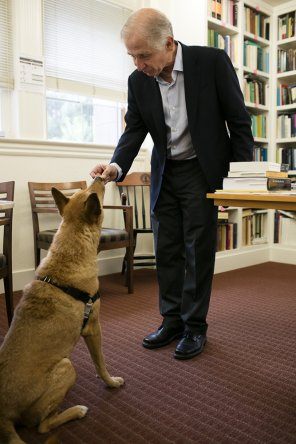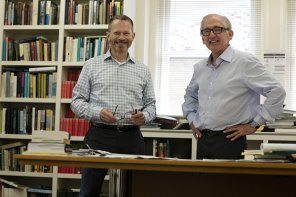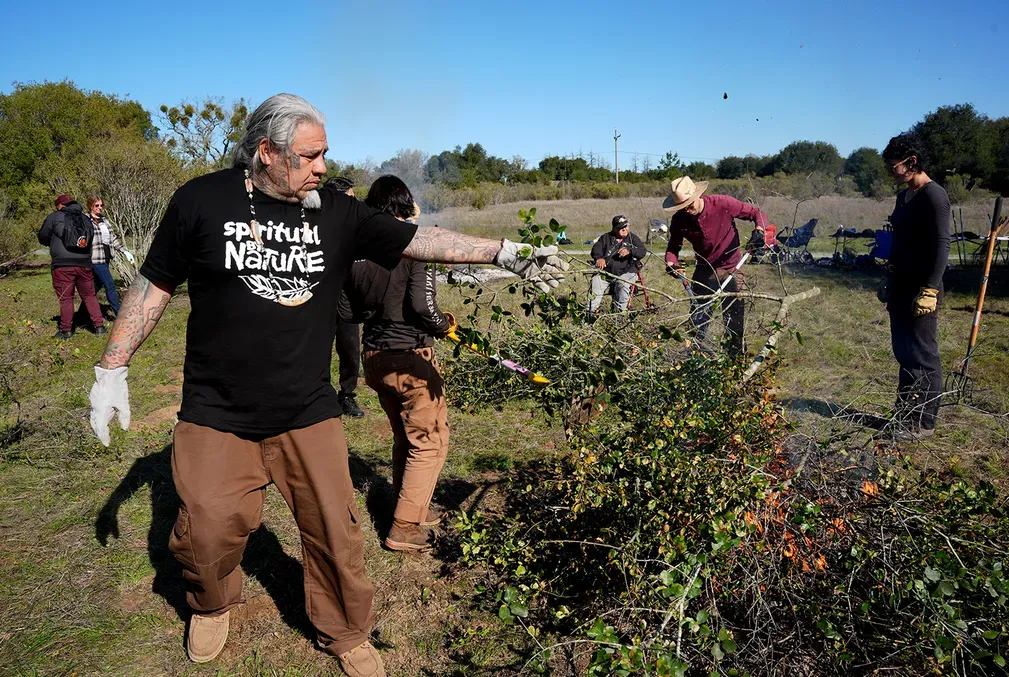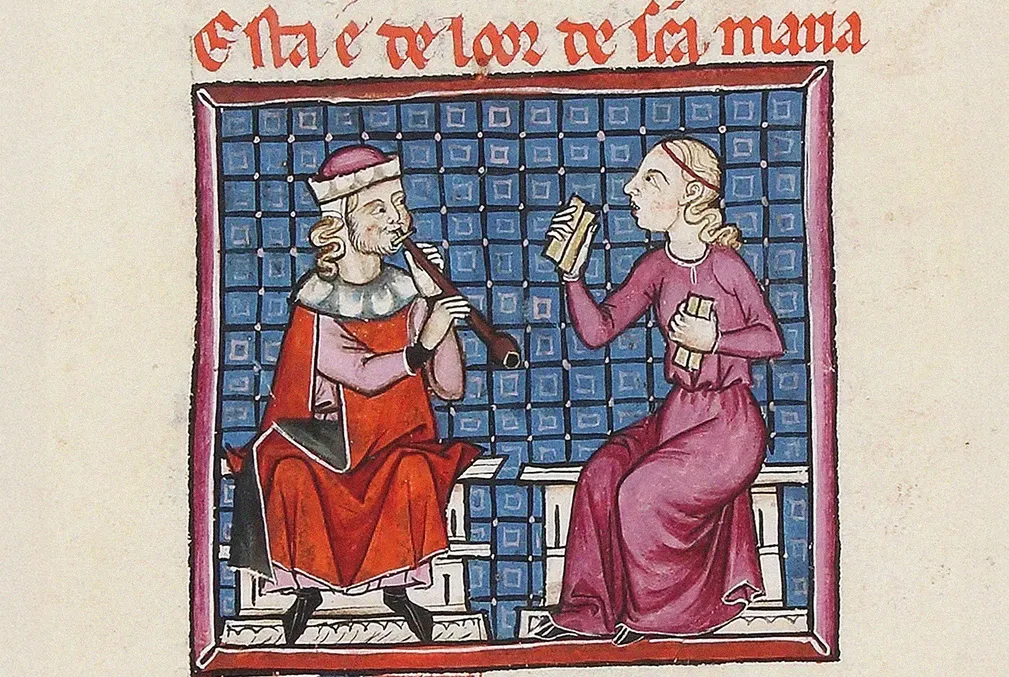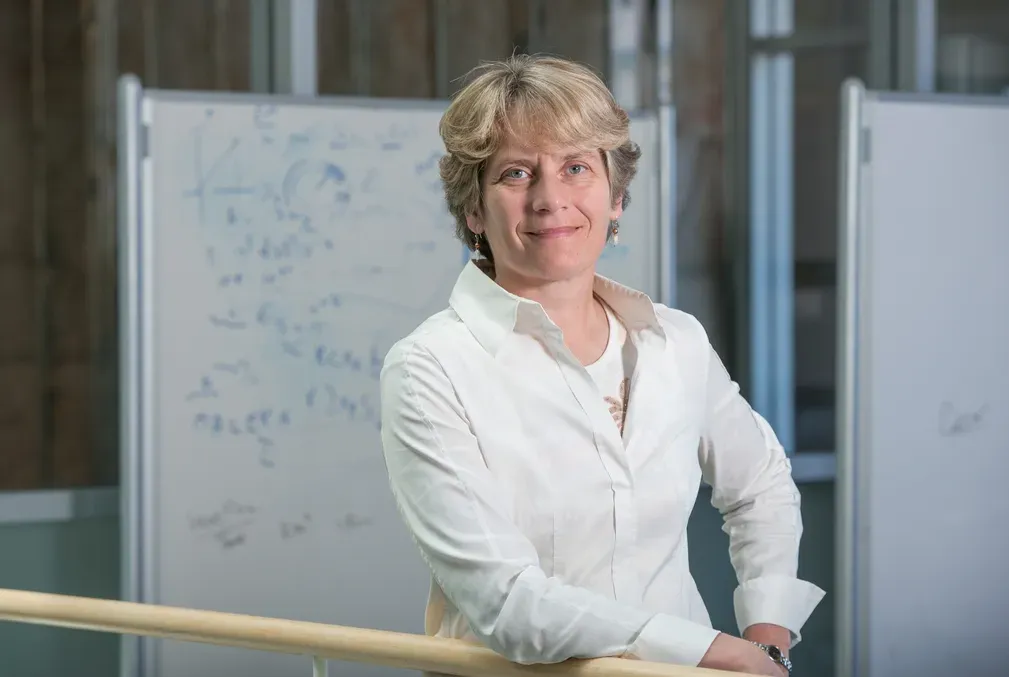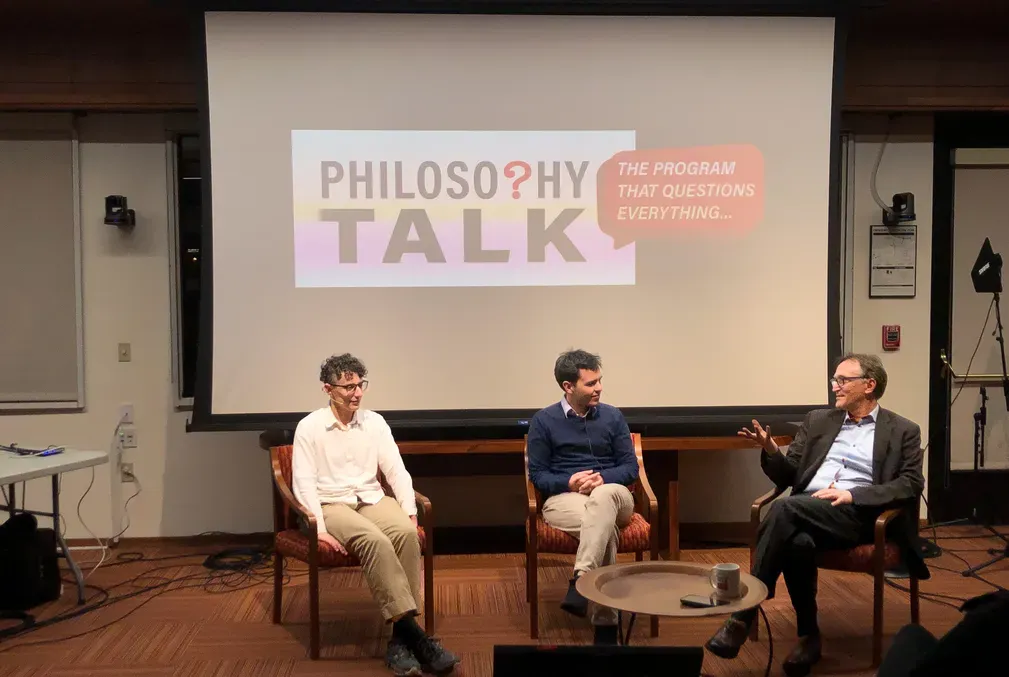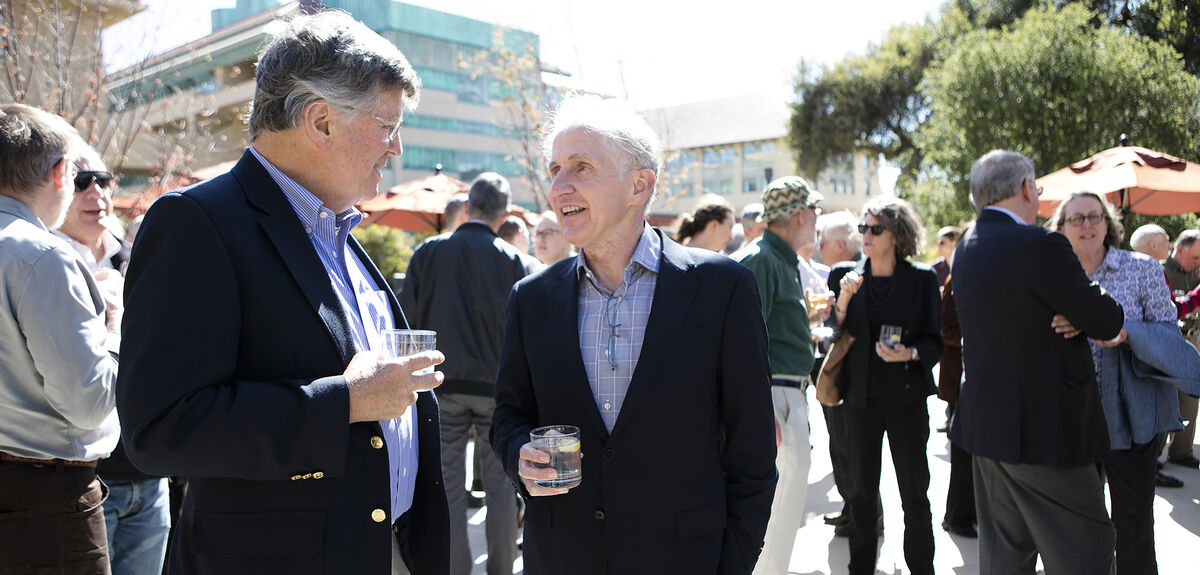
Richard Saller: Dean and Diplomat
In classical Greek mythology, Daedalus, an inventor and architect, creates wings for himself and his son, Icarus, to escape imprisonment by King Minos.
Before taking flight, Daedalus tells Icarus not to fly too close to the sun, but the warning goes unheeded. In the end, Icarus soars too high in the air, melting the wax that holds the wings together, and the young man falls into the sea.
The myth is, of course, a metaphor for human arrogance. Classical mythology teaches many valuable things, but one very important lesson is that hubris will not go unnoticed—and unpunished—by the gods.
This lesson is not lost on Richard Saller, Vernon R. and Lysbeth Warren Anderson Dean of the School of Humanities and Sciences and scholar of classical Roman history. When asked what he is most proud of during his tenure as dean, he responds, “I’ve read enough Greek tragedy to know that pride is punished, so I am not going to say of what I am most proud.”
Saller, the Kleinheinz Family Professor of European Studies, has been the dean of the largest school at Stanford since 2007, leading more than 40 departments and interdisciplinary programs ranging from art history to astrophysics. In August, he will step down as dean and return to teaching.
For many, it could be intimidating to lead a school at one of the premier universities in the world, with nationally ranked departments and scholars who have been recognized with Nobel Prizes, MacArthur Fellowships, and Pulitzer Prizes, among other coveted awards.
With the school’s wide range of academic fields covering the breadth of the liberal arts, Saller’s leadership style is one of humility. “This is a service job. The dean’s office is here to make the faculty and students better, not to dictate the future, because it’s altogether probable that the dean will know less about every academic area, except maybe his or her own field,” says Saller.
University deans must wear three hats interchangeably: chief academic officer of the school, chief executive officer, and chief fundraiser. Saller is one of those rare individuals who wears this trifecta with ease. Across all three areas, he has been the chief diplomat par excellence with the school’s faculty, university administration, and donors and friends of the university.
He is recognized at the highest levels of the university for steering the school through the recession and bringing it into sound financial standing; overseeing the development of the arts and science quads; and increasing graduate fellowships and professorships, which allow the school to recruit some of the best minds to Stanford.
The Future of Higher Education
Saller’s preferred strategy to leading such a diverse group of scholars has been to let the faculty in each discipline determine the directions of growth of their departments, and then to look for the interfaces where the faculty from different disciplines can be brought together. At the same time, his vision for a world-class undergraduate education at Stanford has led him to promote fields that will serve students well—the humanities and arts, social sciences, and global studies, among other areas.
“We can’t help solve problems in world politics if we aren’t engaged in South Asia, where a quarter of the world’s population lives, or the Middle East, where there is so much turmoil and unrest. Some of the United States’ mistakes in the past have come from much too little knowledge of local issues around the world. If our students are going to be leaders, they have to know about regional and local politics,” says Saller.
Equally important to understanding others across the globe is fostering a diverse student community at Stanford. Saller understands students come to Stanford with very different high school experiences and personal backgrounds. He has been a strong advocate for supporting first-generation and low-income students, working across the university to identify how resources and programs can be more coordinated and reach those who need them. And he is sensitive to the fact that the university needs to do a better job of promoting the myriad career opportunities students can successfully pursue with a degree in the humanities and arts.
Saller has also championed timely, applied research that, for example, leads to partnerships with nonprofit and government agencies to improve immigration policy and refugee settlement in the United States or studies the impact of a universal basic income as a means to eliminating poverty and inequality.
Yet not all knowledge leads to immediate, applied solutions, nor should it, as Saller would argue. “We need to preserve what universities are about: pursuing knowledge and rigorously analyzing truth,” he says.
To this end, Saller has spent more than eight years working to promote the humanities and arts. His attention to the humanities goes beyond low enrollments and majors. The humanities are about the pursuit of knowledge to gain greater understanding of the world, connecting the past with the present in order to understand and navigate the future.
“It’s important that the Stanford community not be taken in by the drumbeat of problem solving—which is important, to be sure—but not all of life is solving problems. Not all of life is about innovation, either. A thoughtful, value-based and enriched life—all of those are important, and those grow out of the study of the humanities and arts,” says Saller. Ultimately, he contends, a college education should help prepare students for a complex world in which they can be independent thinkers and engaged citizens.
Saller, a classicist, also recognizes that blue-sky research in the sciences must continue to be cultivated. He cites the process by which the laser was hypothesized and developed by physicists and engineers in the 1950s. At the time, there was no immediate application for creating coherent beams of light with particular wavelengths. Today, however, lasers are ubiquitous in daily life; one could not imagine life without them now.
Ultimately, the advancement of knowledge across the full spectrum of academic fields in both applied and foundational research depends on supporting the next generation of scholars: “Graduate students are the future of our ideas in the humanities and arts, social sciences, and sciences. We must invest in brilliant talent and help them get to the launch point for their own independent careers,” says Saller.
Returning to Rome
In fall 2018, Saller will return to teaching his introductory seminar on Roman history. “I like teaching this course because it gets students to think about claims that are entirely too facile about how the United States is replicating the Roman Empire,” says Saller.
Saller insists on challenging students to think for themselves and develop sound judgment, something that will continue to serve them long after their careers at Stanford. “What I try to do is get the students to understand how different the world is now from what the Romans experienced. The reading that almost always catches their attention is the article on sanitation and health in the city of Rome. When I ask the students at the end of the course, ‘In what way has your view of Rome changed most?’ what they typically say is, ‘Yuck! It was disgusting to live in Rome.’”
After more than two decades as an administrator in higher education—counting his time at Stanford as well as at the University of Chicago as provost and dean of the social sciences division—Saller is looking forward to returning to research and teaching. It is, after all, why he joined academia. However, it is also his skill of being “so damn reasonable,” as one colleague describes him, that took him on his 24-year detour as a diplomat in higher education.
